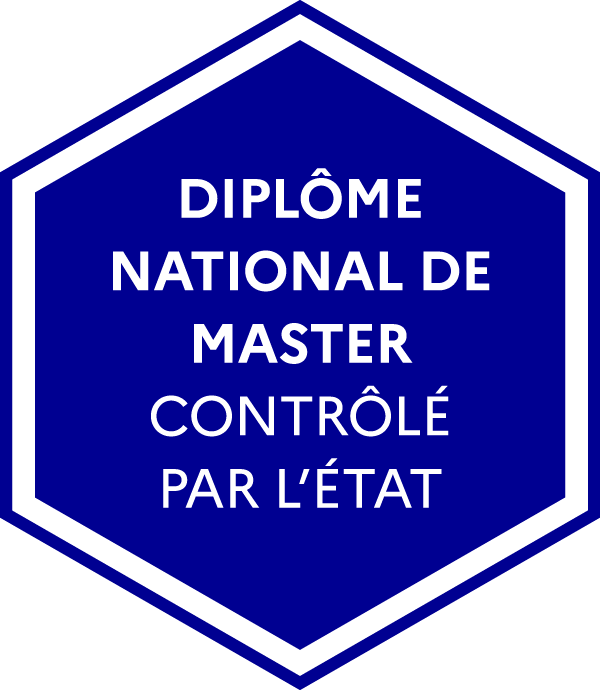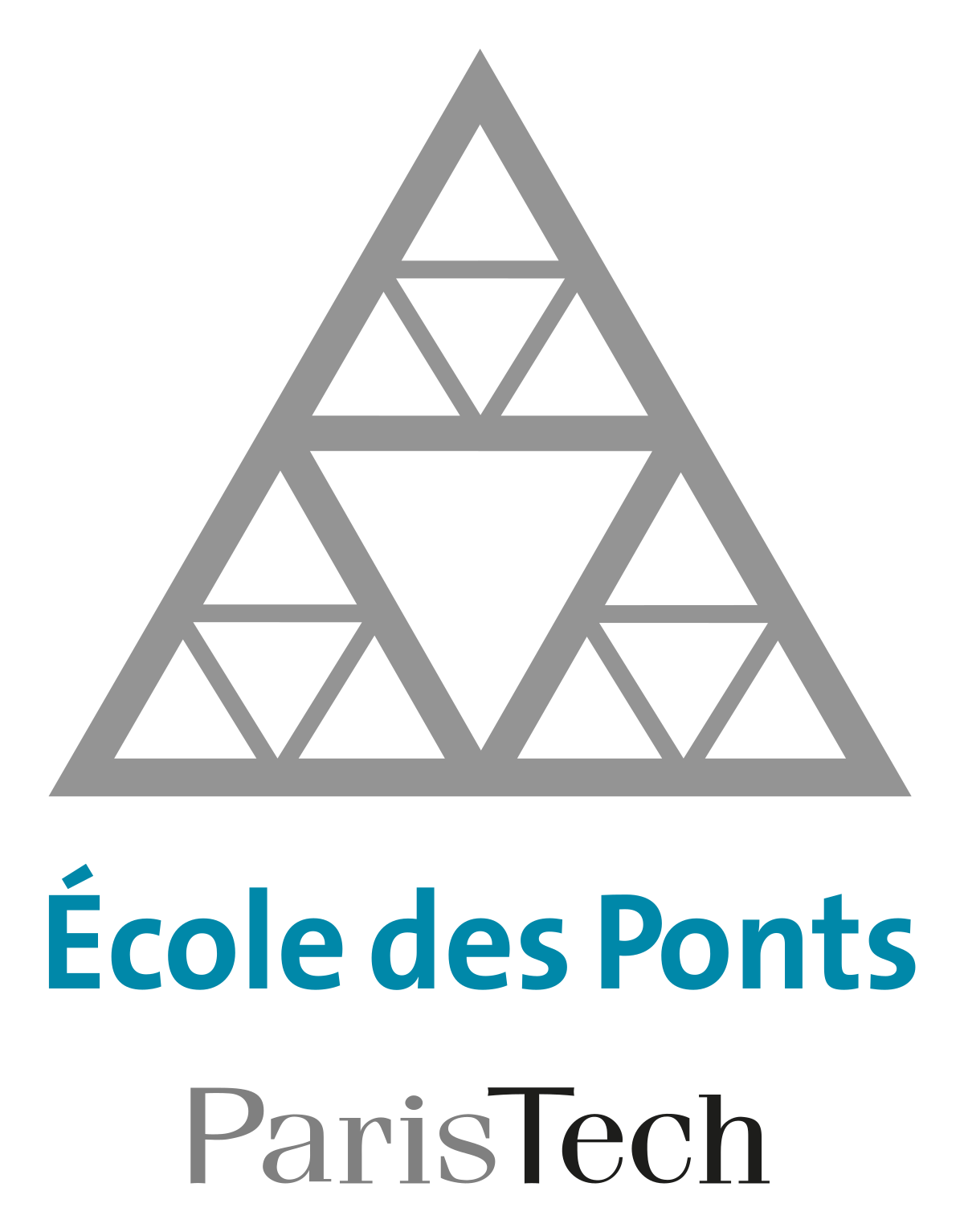Master's degree Civil Engineering


Entry requirements
First year: students admitted to M1 either come from the “Mechanics” programme of the Physics and Chemistry Licence degree or are accepted on the basis of application.
Second year: M1 or equivalent (60 ECTS credits) in a related field (mechanics, civil engineering, etc.).
Benefits of the program
Many civil engineering professionals are involved in the course:
- speakers are mainly temporary staff from the professional world,
- seminars are organised each year with professionals from leading civil engineering groups (Artelia, Paris Ouest, GTM) to give students initial contact with the industrial world and help them find a work placement,
- the work placement is carried out in a company.
Acquired skills
This programme prepares students to take on technical and functional responsibilities through a global approach to the specificities of the construction, maintenance and operation of civil engineering structures.
Students also learn to master tools for the design, calculation, manufacture, construction and maintenance of structures. The course also covers strategies and techniques for managing all the implementation processes, including the specific legal aspects of each site.
International
Hubei University of Technology
Capacities
30
Course venue
Your future career
Sectors: Graduates work in large industrial civil engineering groups, specialist design offices, technical inspection companies and site-management firms. Some pursue further study through a specialised Master’s (CHEBAP, CHEM, etc.).
Careers: business manager, technical inspector works engineer, design engineer, site manager, structural design engineer, project execution engineer, methods engineer.
Professional integration
The “Project Engineering for Civil Engineering” specialisation has a professional focus. It prepares students for positions of responsibility in:
project management; design offices and technical inspection offices; structural design and project implementation; site management; etc.
Companies concerned by this course include:
• National and international construction companies: Bouygues, Vinci, Eiffage, etc.
• National and international design and engineering offices: Technip, Saïpem, OTH, Ingerop, Krebs, etc.
• Technical inspection companies: Ceten, Apave, Socotec, Veritas, etc, as well as many of their partners, often SMEs, who are scrupulous about ensuring the required level of quality and reliability of their services.
Surveys carried out by the university show that most graduates from the Science and Technology Master’s enter the professional world.
Study objectives
The “Project Engineering for Civil Engineering” programme aims to give students the skills to understand and resolve all major problems encountered in the construction, operation and maintenance of civil engineering works, whether industrial, commercial, residential, public or private. In practice, graduates design, size and build such structures based on new European technical regulations. The course also enables students to adopt an overall perspective on a project while taking account of its specificities. It covers aspects related to project management techniques, the roles and responsibilities of the different actors of a project, and specific legal aspects.
Major thematics of study
Reliability of structures and Eurocodes
Reinforced and prestressed concrete structures
Steel-frame structures, composite structures
Engineering structures and dynamics of railway structures
Structure maintenance and renovation
European law and markets
Project management
Synthesis project and structure simulation
Calendar
Term starts: October.
Work placement: from March.
Work placement defence: September.
Back-to-school date
09-16-2024
Semester 1
| Courses | ECTS | CM | TD | TP |
|---|---|---|---|---|
|
Mécanique des milieux continus et calcul tensoriel
1. Introduction to tensorial calculus. 1.1 Definition of a tensor. 1.2 Indicial notation and summation convention. 1.3 Change of base formula. 1.4 Algebraic tensors operations. 1.5 Tensor analysis : differential operators and integral formula. 2. Continuum mechanics. 2.1 Mathematical background. 2.2 Kinematics for finite transformations. 2.3 Stress, Cauchy theorem 2.4 Anisotropic elasticity and constitutive laws. | 5 | 25h | 20h | |
|
Ondes et vibrations
1 Vibrations. 1.1 Equations and fundamental problems of dynamics. 1.2 Free responses and fundamental parameters. 1.3 Deterministic forced responses and linear filters. 1.4 Time-evolution problem with initial conditions. 1.5 Stationary random vibration. 1.6 Vibration transmissibility and vibration isolation. 1.7 Structural modes of vibration and modal analysis. 2. Waves in elastic bodies. 2.1 Wave propagation in one-dimensional medium. 2.2 Propagation of elastic waves in an infinite homogeneous linear medium. 2.3 Waves in semi-infinite media. 2.4 Wave transmission and reflection with the inclusion of a boundary. | 6 | 30h | 30h | |
|
Méthodes mathématiques pour la mécanique
1. Elliptic, parabolic or hyperbolic boundary value problems. 2. Discretization by the finite differences method. 3. Weak formulation and admissible space. 4. Interpolation on a finite element basis; convergence. 5. Numerical integration and reference element. 6. Discretization by the finite elements method. 7. Resolution scheme in time (Euler, Newmark). 8. Nonlinear elasticity (Newton-Raphson, Riks-Crisfield, MAN). | 4 | 15h | 10h | 20h |
|
Comportement des matériaux
1. Classes of behavior. 2. Mechanics of brittle fracture. 3. Fatigue of materials. 4. Time-dependent behavior : viscoelasticity and viscoplasticity. 5. Elastoplasticity and limit analysis. | 6 | 40h | 30h | |
|
Mécaniques des composites
1. Classification elastic symmetries. 2. Identification of elastic properties. 3. Formulation of an anisotopic and heterogeneous linear thermoelastic problem. 4. Basic concepts of homogenization theory. 5. Basic homogenization methods for composites. 6. Multilayered composite beams and plates. 7. Spherical and cylindrical multilayered composite shells. | 3 | 15h | 15h | |
|
Elasticité des poutres et plaques, instabilités
1. Beams and plates 1.1. Kinematic assumptions of beams 1.2. Cases of elementary solicitations 1.3. Internal efforts: calculations and diagrams 1.4. Energy theorems 1.5. Force method and displacement method 1.6. Kinematics of thin and thick plates 1.7. Strain tensor and generalized stress tensor 1.8. Rectangular and circular plates bending 1.9. Approximate resolution method 1.10. Numerical resolution method 2. Instabilities of elastic beams 2.1. Euler method. 2.2. Instability of discrete systems: energy method. 2.3. Numerical method for solving instability problems related to elastic structures. | 6 | 25h | 25h |
Semester 2
| Courses | ECTS | CM | TD | TP |
|---|---|---|---|---|
|
Stage
The internship, lasting at least 2 months, must be done in a private company or in a research laboratory. The objective of the internship is to understand the functioning of business or the research activities and to put in practice the knowledge learned during the courses. Students have to prepare a dissertation and an oral defense. | 7 | |||
|
Anglais
| 3 | 15h | 15h | |
|
Maintenance et réhabilitations des ouvrages
| 3 | 15h | 15h | |
|
Mécanique des fluides
1. Continuity and Navier-Stokes equations. 2 . Kinetic energy equation and Bernoulli equations. 3 . Isentropic compressible flows of an ideal gas and shock waves. 4. Non Newtonian fluid flows. 5. Laminar external flows and dynamic boundary layers. 6. Introduction to turbulence. | 4 | 20h | 20h | |
|
Méthodes numériques et éléments finis
1. Elliptic, parabolic or hyperbolic boundary value problems. 2. Discretization by the finite differences method. 3. Weak formulation and admissible space. 4. Interpolation on a finite element basis; convergence. 5. Numerical integration and reference element. 6. Discretization by the finite elements method. 7. Resolution scheme in time (Euler, Newmark). 8. Nonlinear elasticity (Newton-Raphson, Riks-Crisfield, MAN). | 4 | 15h | 10h | 20h |
|
Phénomènes de transport/acoustique en milieux poreux
1. Direct static characterization of real samples. 2. Prediction of transport properties from three-dimensional periodic unit-cells. 3. Frequency-dependent visco-inertial and thermal responses. 4. Comparison with standing wave tube measurements. 5. Effective elastic properties of the porous medium. | 3 | 10h | 10h | |
|
Conception et calcul d'ouvrages
1. Generality and Principles of reinforced concrete. 2. Properties of the materials. 3. Actions and loadings. 4. Basic hypotheses (ELU et ELS). 5. Design of elements under uniaxial compression. 6. Design of elements under simple bending. 7. Design of elements under shear loading. | 6 | 30h | 30h |
Hung Quang LE (M1)
LE Hung Quang
DAULT Marie-laure (M1-M2)
DAULT Marie-laure (M1-M2)
Partners


